What are the benefits of Mindfulness and Meditation.
Introduction:
When we talk of Yoga, as we have said before, people associate it with meditation rather than exercise. So I thought that for a change rather than continue with what both Yoga and Pilates can do for you, that in this blog that I would take a brief look at meditation. You may be pleasantly surprised at what this ancient art can do.
You will notice that in addition to having to concentrate your mind, that breathing also plays an important part in your meditation.
What are the benefits of Mindfulness and Meditation.
It is understood that in America over ten million people practice the art of mindful meditation. It is believed that this is due to people being able to enjoy living a life that is more productive and less stressful, which results in them enjoying a better life.
With such a large number of people turning to meditation, we have to ask ourselves why? The simple answer is because it works. It is of course much deeper than that, our generation has to absorb far more information, resulting in more stress than our ancestors.
Those who practice mindful mediation, do so for a number of differing reasons such as, reducing stress, a better more purposeful life, better awareness, the list can go on. However that is sufficient to give you a basic understanding why people have turned to this form of developing their mind.
Irrespective of your reasons, you are more in control of your life, the more that you know about your thinking. Mindful meditation, like music has a number of layers. Your awareness is concentrated on the here and now.
We often let ourselves become distracted, let ourselves wander into the past or the future, this results in us not focusing on the matters that are important now. By practicing mindful meditation we are given the power to direct our attention to the present. We are able to perform better, thus achieving more as our mental energy is increased.
Using mindful meditation allows us to not only increase our awareness and enjoy the present more, heightening our senses as we do so.
We are able to become more relaxed, as our awareness is increased, the threats of stress and other less helpful thoughts become easier to cope with.
Unlike our ancestors who rarely moved from where their birthplace, in today’s modern world it is not unknown for people to move on a regular basis, this causes us to not be able to form the number of long-lasting friendships, which previous generations enjoyed. By using mindful meditation we can have the mind set to help us cope, with a large number of the problems, which modern life brings with it.
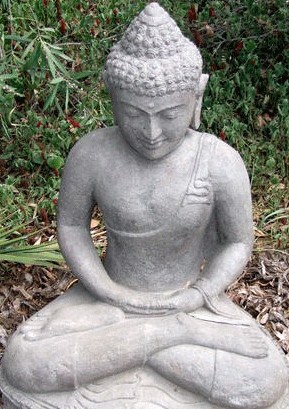
The best way to describe what are the benefits of Mindfulness and Meditation, is that it exercises the mind, as Yoga can be said to exercise the body. It is suggested that you have a short period of meditation daily, this will gradually strengthen your mind, strengthening your thought process and awareness as you do so.
When you begin to practice meditation, you may well find that it is difficult for to sit quietly for say ten or fifteen minutes. Do not make excuses for not doing it, if you do, it makes resuming the meditation harder, the longer you think of excuses for not continuing.
If this is you, ask yourself, why did I start to meditate in the first place, whatever the reason, it will not be right or wrong. Be strong allocate a period, either first thing in a morning or at lunchtime, in time you will see the progress that you have achieved.
You may be interested to learn that I meditate, felt that I could not write this without trying it out. At the bottom of my garden is a summer house, which I have turned into my art studio. I sit in there and meditate, am only at five minutes at the moment, but it works, when I return to my office, I feel relaxed, very calm and full of go.
How often have we avoided thinking of our problems, as they have become too stressful, practicing meditation on a regular basis, help us to deal with problems by giving us an inner calm.
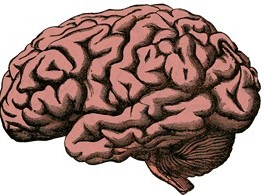
We are all aware of using our addiction to drugs, alcohol and even social media to avoid helping us to sort out our problems. By meditating on a daily basis, we are kept not only focused, but able to deal with our problems. Like many things in life, the more you practice the better you become.
Studies have found that the regular practice of mindful meditation has a number of benefits, these include amongst others:
Lowers the Blood Pressure
Gives you more energy
You enjoy a better night’s sleep
Stress related illnesses are reduced
Improves your ability to make better decisions
There are a number of other benefits, but it is felt that just listing the above will give you a general idea.
It is well-known that the body and mind are connected, if we are stressed so is our body, this is why mindful meditation helps to alleviate problems we suffer when stressed, as when we improve our mental health, we can reduce a number of our physical problems.
Studies have shown that when patients have used mediation instead of drugs, that the effect on the brain was the same with either treatment. This goes to show the power of this form of meditation. The studies were based on just two and a half hours of mediation a week, it was thought that a longer period would show even better results and improvement.
Practicing Mindful Meditation
To begin make sure that your clothing is comfortable
Find a spot which is without noise if possible, and sit somewhere which is comfortable.
Where you choose to meditate, is up to you, it can be indoors or out.
Begin with short sessions of say ten minutes. Once you are used to meditating the time can be increased to suit you. As I mentioned earlier I do five minutes at the moment.
If need be you can split your time into two sessions.
Let’s Get Started
If you wish you can sit in your favourite armchair, or even adopt the lotus position, if you are sitting own have your feet resting on the floor. Make sure that your spine is straight, but not tensed or stiff. Hold your head so that it hangs naturally, whilst gazing downwards. Let your hands rest on your thighs.
The majority of people seem to prefer to close their eyes, but you do not have too. This is a personal choice, which you must make. If you are happy with whatever you want to do, then do it. The main objective here is to be comfortable.
Begin by concentrating on your breathing, as mentioned in a previous blog, inhale through the nose, taking the breathe deep down into the stomach, exhale slowly.
When I do this, I can feel the air as it moves into and down my body. Must confess it feels invigorating. Whilst you must try to concentrate, do not worry if your mind wanders, just try to concentrate on you breathing.
When you have finished your meditation, open your eyes, or if open just relax, being aware once more of your surroundings.
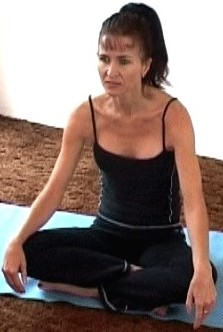
Overcome Stressful Situations with Meditation
Doing meditation on a daily basis can help you deal with your daily stress, we all have periods most days when we have a stressful moment, it could be the children wanting things which you cannot afford, your partner wanting a meal out, when you want to stay. There are a number of things that occur daily which can cause you stress.
Whenever this happens, try to take deep breaths, sit quietly if you can for just a few minutes as you concentrate on your breathing. This will help you to relax. If it is possible taking a short walk, practicing your breathing as you do so. This is known as walking meditation and is a great way of getting your mind clear of stress.
Unlike the previous meditation, where we concentrated on our breaths, when we walk we concentrate on our steps, not the rise and fall of our breath, but how our feet move as we walk. Try counting to yourself ten steps at a time as you concentrate.
This time as you move you will notice the sights and sounds around you, let your thoughts drift back to your feet.
Instead of focusing on your feet and body, try instead to be aware of what is around you, the smells, the colours the general atmosphere.
More Techniques
Other techniques which help you to become more mindful and increase your awareness,
Meditate by Focusing on a Specific Object
This time, choose an object that you would like to observe and can see completely, begin by doing your breathing meditation for five minutes with your eyes closed. Open your eyes and focus on your chosen subject. Is it in the light or dark, is it of differing colours, notice what you can as you breathe slowly and deeply focusing all the time on our object.
Should your mind wander, return to the object of your awareness.
Body Scan Meditation
This is very useful in helping to keep your focus sharp, releasing tension as you finish the day, you are then helped too easily fall asleep.
Sit or lie where you feel most comfortable, you are going to concentrate on the areas of your body where you feel most tension.
Begin with five minutes of breathing deeply, with your eyes closed. Move your concentration to your body, as you become more aware, concentrate first on your feet and toes, moving up to the ankles, feet, thighs and then your body itself.
When an area feels tense breathe in concentrating on that area, then breathe out, spend as much time as you want too on these tense spots. Cover the entire body, this exercise not only relieves tension, it helps to calm the mind, and helps in dealing with stress.
Meditation by Counting
As you have done previously, find somewhere comfortable to sit, spend five minutes to relax, whilst you do your breathing meditation. Now inhale deeply, wait for a second, then while counting the number one in your mind, exhale. Continue doing this increasing the number each time, so from one go to two and so on. Cary on until you reach ten, then count backwards, until you reach one. Should you lose track of where you have got to with your counting simply start again.
How high you count to is down to you, as you breathe think of some exotic place that you would like to be. Take your time, relax and enjoy the new peace which you have found
Conclusion
Do try some of these meditation exercises, I am sure that you will be surprised by the results I know that I was.
As with all my blogs, what you read here is for information purposes only, and should be treated as such. If in doubt about trying these exercises please see your medical Adviser first.
Stay healthy
Stuart
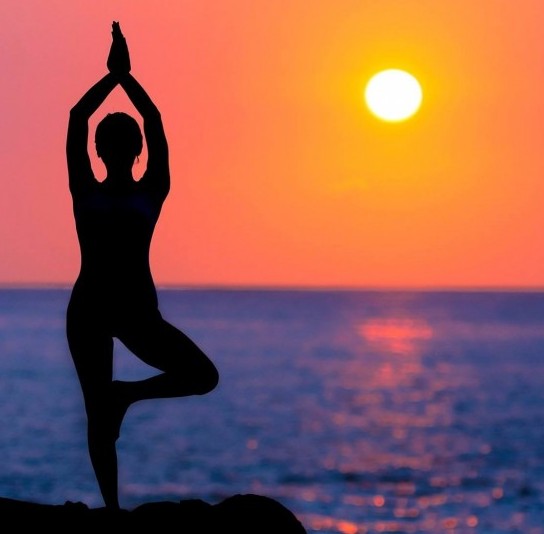
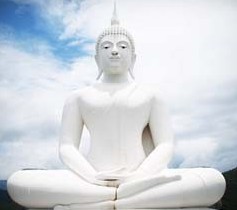
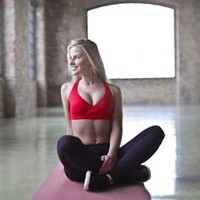
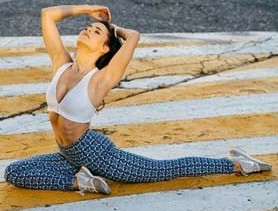

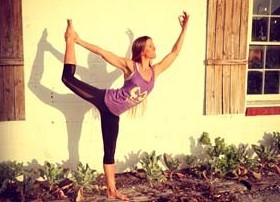


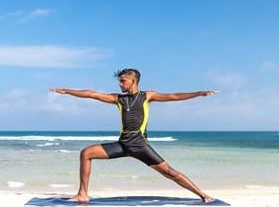
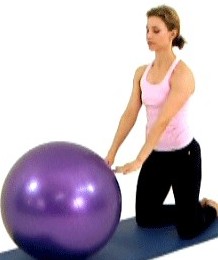

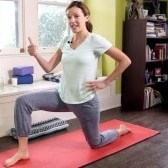

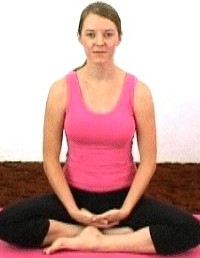
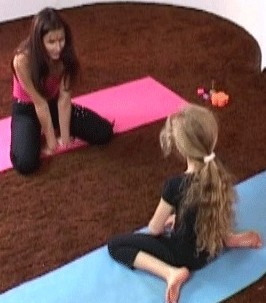
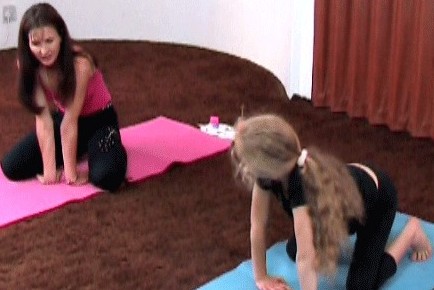
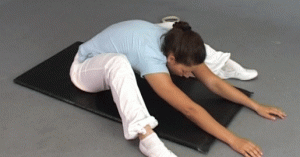 permanently, when regular exercise is undertaken.
permanently, when regular exercise is undertaken.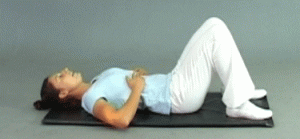 Holding your head more erect also helps.
Holding your head more erect also helps.